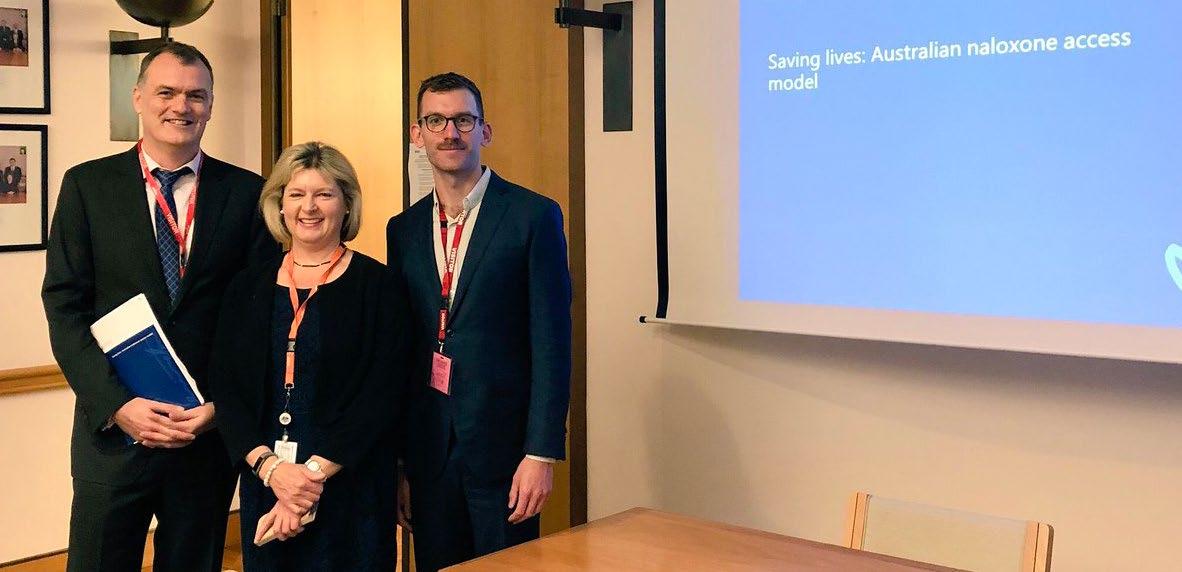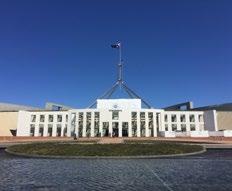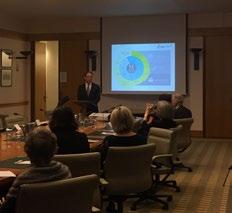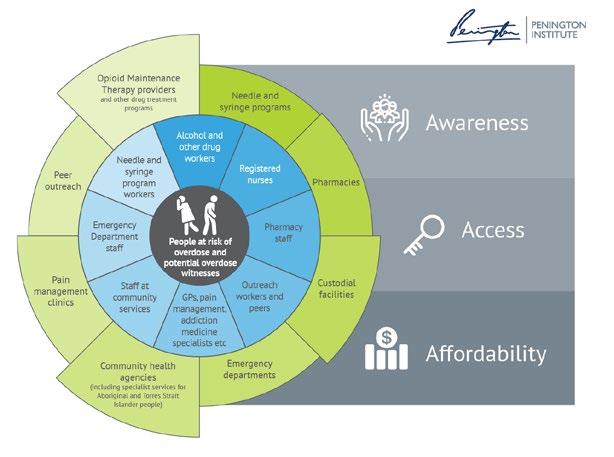
3 minute read
Naloxone: access, affordability and awareness vital to save lives
Left to right: Penington Institute CEO John Ryan, Pain Australia CEO Carol Bennett and Dr James Petty from Penington Institute. Photo thanks to Pain Australia.
Australia urgently needs new solutions to help counter the growing number of fatal overdoses across the nation. In 2016 there were 1704 accidental overdose deaths and of these 1123 involved opioids, be they illicit opioids such as heroin or pharmaceutical opioids such as oxycodone, codeine and fentanyl.
On 19 September in Canberra the Minister for Health the Hon Greg Hunt MP officially launched a new Penington Institute report: Saving lives: Australian naloxone access model.
Attendees included parliamentarians, representatives of peak bodies Pain Australia, the Pharmacy Guild and the Pharmaceutical Society as well as leaders from pharmaceutical companies and peer harm reduction organisations. Minister Hunt expressed concern about overdose deaths.
“We are not the United States. We do not have catastrophic opioid problems. But we do have a problem, and the levels of prescription overdose deaths are unacceptable,” the Minister said. “This report about the Australian naloxone access model ... is extremely valuable.
“We will very, very seriously consider the recommendations here … there has to be more action to get naloxone into the hands of those who need it.”
Guests were enthusiastic about the report and responded positively to Narelle who spoke about her experience of overdosing on heroin and then being reversed by ambulance paramedics using naloxone. Although 20 years ago her memories are fresh – and she still has the naloxone box from that time.
Narelle tragically lost her brother Shane to an overdose of pharmaceutical medications. “My story is a contrast - I’m here today because naloxone saved my life,” Narelle said.
“But there are so many others like my younger brother who aren’t alive now. “To think if my parents had naloxone that morning and knew how to administer it and knew how to do all the right things with it, he’d still be here today.”
Penington Institute Deputy CEO Dr Stephen McNally said that opioid overdose reversal medication naloxone is a vital medicine, but it is not getting into the hands of those who need it.
“Naloxone is a remarkable medicine which can save many more lives in every corner of the country. Obviously if people cannot get access to it or can’t afford it, we simply aren’t going to get anywhere,” Stephen said. “If people don’t understand how to administer it, we will be held back. We absolutely want to turn the tide on opioid overdose deaths. “To mid-September this year only 960 scripts have been written for naloxone. This number is far too few to change the overdose trajectory we are facing.” The new report investigated approaches to naloxone provision and distribution in jurisdictions in Canada and the United States and national programs in Norway and Scotland. The report model is summarised in the infographic below. It recommends ensuring priority people have easy access to naloxone. These include: people who inject drugs, people prescribed strong opioids, soon-tobe released prison inmates, and the friends and family of people who use opioids. Today people have a choice: either purchase naloxone over-the-counter, which is very expensive, or buy it via a doctor’s prescription. “We have found that prescriptions have proved to be restrictive. People are simply not asking their GP for a script and doctors are not having the conversation about naloxone and so not writing enough scripts,” said Stephen. “Naloxone needs to be freely available if we are serious about saving lives.” To download a copy of the report visit:
http://www.penington.org.au/reportnaloxone-access/ Sophie Marcard


Minister for Health, the Hon Greg Hunt MP speaking at the Canberra launch











